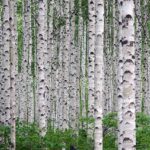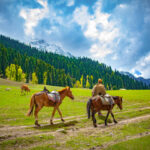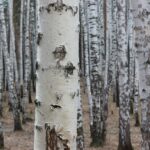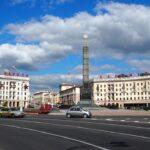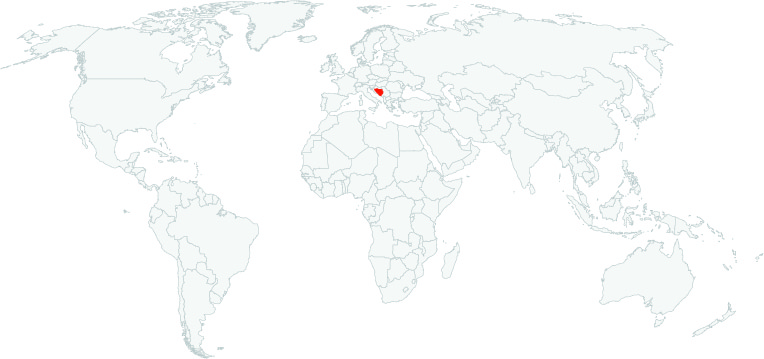
In 2024, FSC and Assurance Services International (ASI) launched a transaction verification (TV) loop on FSC-certified birch wood panels in China and Europe. The preliminary results from the first phase of the TV loop – data collection and analysis – reveal a number of integrity risks in certified birch wood panel supply chains. The risks will be evaluated in the next stages of the investigation. The TV loop captured 3,436 transactions that took place in 2023, as reported by 665 certificate holders with physical possession of certified material from 18 countries in the Eurasian region. They are Bosnia and Herzegovina, Bulgaria, China (including Hong Kong), Latvia, Romania, Slovakia, Croatia, the Czech Republic, Estonia, Georgia, Greece, Hungary, Lithuania, Moldova, Poland, Slovenia, Serbia, and Ukraine.
Some of the key findings and the integrity risks they pose to certified birch wood panel supply chains are:
- Around 74 % of the certificate holders reported zero transactions (no purchases or sales) of birch products, many of which were from China. This is indicative of a potential risk because there are multiple stakeholder reports alleging a large supply of birch products originating in China.
- Concerning cases of potential volume mismatch: some certificate holders reported purchases while their suppliers reported zero sales. Additionally, some certificate holders declared the purchase or sale of specific (‘zero transaction’) Betula species that were not within the suppliers’ certificate scope or geographic region.
- A large volume of birch logs purchased from Ukrainian forests may potentially originate from the conflict area. In light of the current suspension of the FSC certificates in specified conflict zones, the reported volume of domestic purchases from Ukrainian forest management units and the volume of wood panels exported from Ukraine are a cause for concern.
- None of the certificate holders participating in this TV loop declared any purchase or sale of birch from Russia within the scope of their FSC certification. However, potential mismatches between the volume of wood purchased and sold through the supply chain may be a result of non-certified wood (including that from Russia) entering the certified supply chains.
The woodlands of Albania once covered nearly half of the country. In these past 25 years, however, reports estimate a 20% loss to the country’s forest cover. Albania’s forestry sector is plagued by uncontrolled logging, a sprawling informal economy, and weak regulatory enforcement. The collapse of state control in the 1990s opened the floodgates to illicit timber harvesting. Investigations by the Balkan Investigative Reporting Network found that in 2011 alone, approximately 1.3 million cubic meters of treeswere felled illegally, often with the tacit approval of corrupt officials. and evading taxation and regulation. Official wood production statistics do not match actual consumption.
In 2016, the Albanian government imposed a nationwide logging moratorium. Law No. 5/2016 banned commercial logging in both public and private forests for the following decade, with limited exceptions for community firewood and forest health interventions. Timber exports were also outlawed. However, as time passed, the moratorium limitations became hard to ignore. Illegal logging had not ceased, it had adapted. Loggers moved deeper into remote areas, operated at night, and refined their methods to avoid detection.
The 2016 moratorium was accompanied by a major institutional shift: the transfer of forest management responsibilities from central authorities to Albania’s 61 municipalities, intended to bring governance closer to local communities, allowing for better oversight and accountability. In practice, however, it exposed severe capacity gaps . Many municipalities were ill-equipped to manage vast forested areas. As of 2023, 33 out of 61 municipalities had no forest management or reforestation plans in place.
Experiences of neighboring countries of North Macedonia, Bosnia Herzogovina and Italy are cited.
Up to 40% of all softwood entering the EU comes from Ukraine, according to new data published by Eurostat—the European Union’s statistics bureau—which reports that Ukraine, Norway (32%, or 409,000 cubic metres), and Bosnia and Herzegovina (10.5%, or 133,000 cubic metres) are Europe’s new big three in the wake sanctions imposed on Russia, which together with Switzerland and Canada make up the vast majority of the 1.262 million cubic metres trade into the block.
The Zelenskyy administration new policies will ramp up timber processing in the controlled (west). WWF-Ukraine Director warns that the new policy risks making Ukraine a “high-risk” country as defined under the EUDR’s terms and definitions.
The TV loop aims to identify and take action against instances of false claims or other violations of FSC requirements.
The scope of this Eurasia birch wood panels TV loop is:
- Geographic areas: China and central and eastern European countries (Bosnia and Herzegovina, Bulgaria, Croatia, Czech Republic, Estonia, Georgia, Greece, Hungary, Latvia, Lithuania, Moldova, Poland, Romania, Serbia, Slovakia, Slovenia, and Ukraine).
- Product type: Plywood
- Species: Birch (Betula)
Click here to access the Global Illegal Logging and Associated Trade (ILAT) Risk assessment tool and to download the Forest Trends User Guide describing the functionality of the ILAT Risk Data Tool.
Click here to access the Cattle Data Tool.

